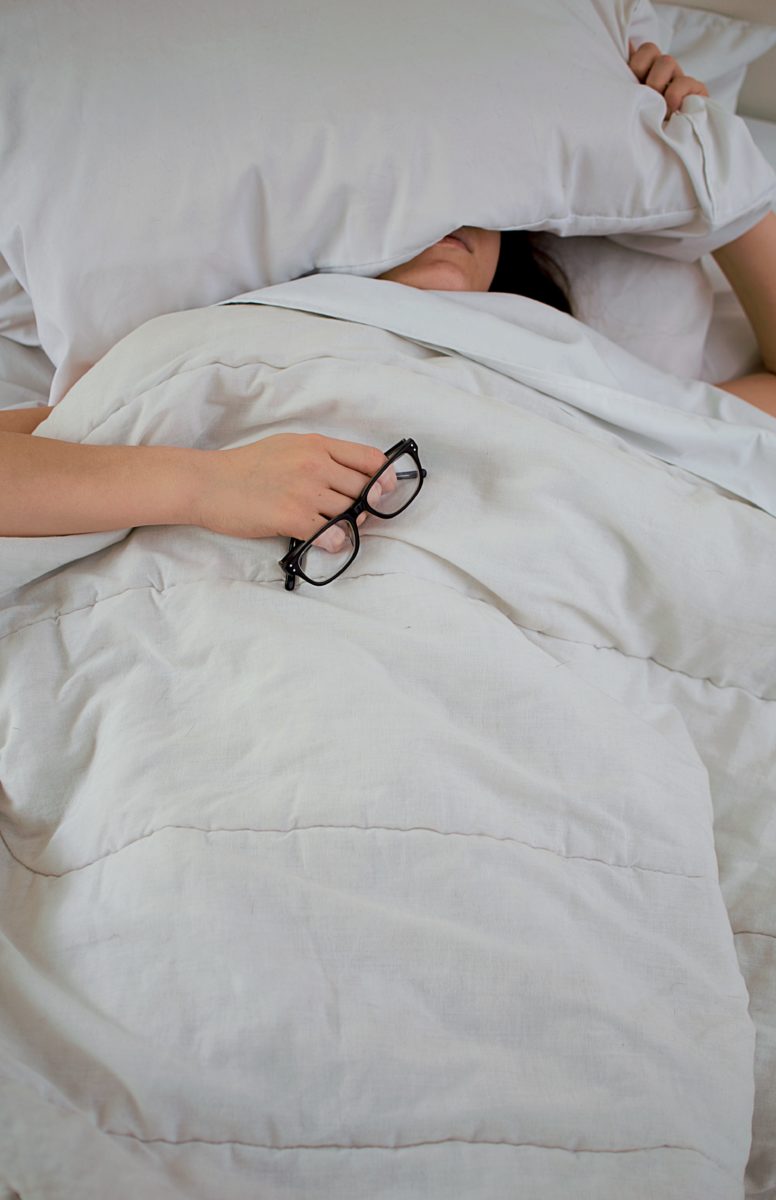Frequently clients or parents of clients are curious as to why sleep takes a prominent role in our discussions. If you have sat in my office, you have likely answered questions for me about sleep. Clients or parents may have come to me for anxiety, depression, children’s behavioral issues, or issues of attention, but in 10 years of practice, I would argue to you, that sleep a key foundation of all mental health.

Mental health issues are on the rise across the board. Research supports that 1 in 4 American adults suffer from a diagnosable mental health disorder. From March 2020 to October 2020, mental health emergency department visits increased 24% for children ages 5-11 and 31% for ages 12-17. The mental health of children and adults is suffering due to the perfect storm of increased screen time, heightened global tensions, pandemic stressors and social media to name a few.
Our mental health affects everything we do. It affects how well we work, how we behave, how we interact with others, and how we build relationships. If 1 in 4 adults and 1 i n6 children suffer from a mental health disorder, I would argue that we, as a society, are not functioning well at all.
So why sleep? If mental health is the issue, why am I not telling you about the latest counseling strategy, or latest behavioral intervention? One of the greatest misconceptions about mental health is that is exists in a vacuum. Often counselors and medical health professionals are treating the same client without even communicating. But what kind of clinician would I be if I wasn’t looking at the whole picture? How could I expect to help my client heal emotionally if I am not taking in to account their body, physiology, genetics, family system, etc.
Which brings us to sleep. Humans need a set amount of sleep to survive. For toddlers and children this ranges from 11-14 hours. For adults this ranges from 7-9 hours. Sleep has been directly tied in research to happiness, mood, attention, resiliency, and memory. In children, sleep affects development such as acquiring vocabulary, memory consolidatin, executive functionning and motor skills development. Knight and Dimitriou found in 2019 that poor sleep presents with almost the exact same symptoms as ADHD. With so many children coming to counseling for “attention and behavior,” how can we avoid the risk of a misdiagnosis except to explore sleep? Another study found that with mild sleep impairment or restriction, people were markedly impaired and lacked alertness, but rated themselves subjectively as only moderately sleepy. What does it mean? That even when greatly impaired by poor or restricted sleep, people tend to underestimate the cognitive and emotional impact of sleep.
So if we know that quality sleep is vital for healthy mental and behavioral functioning, how can we achieve it?
- Reduce blue light exposure- Blue light blocks your body’s ability to produce melatonin; the natural sleepy hormone. Limit screen time and discontinue screen usage 2 hours before bed time. You can also pick up a pair or blue-light-blockers for use during the day, adult and children’s sizes (and even fun colors).
- Prepare the environment- Turn on white noise to reduce startling and interrupted sleep. Block out light using blackout curtains or sleep masks, even available in fun characters for kids.
- Set a schedule- The key to good sleep is consistent sleep. You can train your body to improve sleep quality by creating a sleep routine. Plan to go to bed and wake at the same time each day. Don’t eat or watch tv in bed, as this can confuse your body. Reinforce to your mind that beds are for sleeping so when you get in bed, your mind is prepared for sleep.
- Weighted blanket- Adults and children can both benefit from use of a weighted blanket. Like small hugs to your body, weighted blankets promote deep pressure stimulation, which decreases stress and anxiety, making it easier to fall and stay asleep.
Try these tips and see how your sleep improves. Check out my list page for more of my favorite ways to achieve “successful sleep”.
